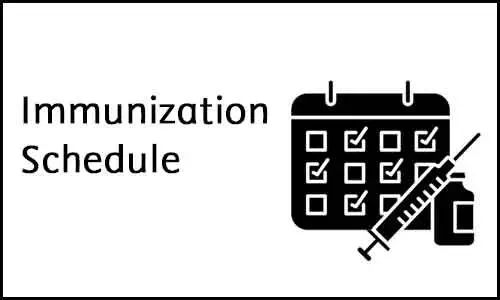- Home
- Medical news & Guidelines
- Anesthesiology
- Cardiology and CTVS
- Critical Care
- Dentistry
- Dermatology
- Diabetes and Endocrinology
- ENT
- Gastroenterology
- Medicine
- Nephrology
- Neurology
- Obstretics-Gynaecology
- Oncology
- Ophthalmology
- Orthopaedics
- Pediatrics-Neonatology
- Psychiatry
- Pulmonology
- Radiology
- Surgery
- Urology
- Laboratory Medicine
- Diet
- Nursing
- Paramedical
- Physiotherapy
- Health news
- Fact Check
- Bone Health Fact Check
- Brain Health Fact Check
- Cancer Related Fact Check
- Child Care Fact Check
- Dental and oral health fact check
- Diabetes and metabolic health fact check
- Diet and Nutrition Fact Check
- Eye and ENT Care Fact Check
- Fitness fact check
- Gut health fact check
- Heart health fact check
- Kidney health fact check
- Medical education fact check
- Men's health fact check
- Respiratory fact check
- Skin and hair care fact check
- Vaccine and Immunization fact check
- Women's health fact check
- AYUSH
- State News
- Andaman and Nicobar Islands
- Andhra Pradesh
- Arunachal Pradesh
- Assam
- Bihar
- Chandigarh
- Chattisgarh
- Dadra and Nagar Haveli
- Daman and Diu
- Delhi
- Goa
- Gujarat
- Haryana
- Himachal Pradesh
- Jammu & Kashmir
- Jharkhand
- Karnataka
- Kerala
- Ladakh
- Lakshadweep
- Madhya Pradesh
- Maharashtra
- Manipur
- Meghalaya
- Mizoram
- Nagaland
- Odisha
- Puducherry
- Punjab
- Rajasthan
- Sikkim
- Tamil Nadu
- Telangana
- Tripura
- Uttar Pradesh
- Uttrakhand
- West Bengal
- Medical Education
- Industry
ACIP releases 2020 Childhood and Adolescent Immunization Schedule

The Centers for Disease Control and Prevention's (CDC) Advisory Committee on Immunization Practices (ACIP) has released its Childhood and Adolescent Immunization Schedule for 2020. The new recommendations include a number of changes important for those of us who care for children.
Major Highlights are-
Haemophilus influenzae type b vaccination
Revised to indicate that catch-up vaccination is not recommended for previously unvaccinated children 5 years (60 months) or older who are not at high risk.
Hepatitis A vaccination
Recommendation added that all children and adolescents 2-18 years of age who have not previously received hepatitis A vaccine should receive catch-up vaccination and complete a 2-dose series.
Hepatitis B vaccination
Under Special Situations, information has been added regarding populations for whom revaccination may be recommended.
These include infants born to HBsAg-positive mothers, hemodialysis patients, other immunocompromised persons.
Meningococcal serogroup A,C,W,Y vaccination
Guidance regarding adolescent vaccination of children who received MenACWY prior to age 10 years has been added:
Children for whom boosters are recommended because of an ongoing increased risk of meningococcal disease (eg, those with complement deficiency, HIV, or asplenia): Follow the booster schedule for persons at increased risk.
Children for whom boosters are not recommended (eg, those who received a single dose for travel to a country where meningococcal disease is endemic): Administer MenACWY according to the recommended adolescent schedule with dose 1 at age 11–12 years and dose 2 at age 16 years.
Meningococcal serogroup B vaccination
Guidance added for special situations and for persons deemed to be at increased risk in an outbreak setting.
For persons aged ≥10 years with complement deficiency, complement inhibitor use, asplenia, or who are microbiologists:
MenB booster dose 1 year following completion of a MenB primary series followed by MenB booster doses every 2-3 years thereafter, for as long as increased risk remains.
For persons aged ≥10 years determined by public health officials to be at increased risk during an outbreak:
One-time booster dose if it has been ≥1 year since completion of a MenB primary series.
A booster dose interval of ≥6 months may be considered by public health officials depending on the specific outbreak, vaccination strategy, and projected duration of elevated risk.
Poliovirus vaccination
Information added regarding which oral polio vaccine (OPV) doses may be counted toward the US vaccination requirements.
Only trivalent OPV (tOPV) counts toward the US vaccination requirements.
Doses of OPV administered before April 1, 2016, should be counted (unless specifically noted as administered during a campaign).
Doses of OPV administered on or after April 1, 2016, should not be counted.
Tetanus, diphtheria, and pertussis (Tdap) vaccination; Diphtheria, tetanus, acellular pertussis (DTaP) vaccination
Updated to allow either Td or Tdap, as an option for decennial tetanus booster doses and catch-up series doses in persons who have previously received Tdap.
Guidance added for children who received doses of Tdap at age 7-10 years:
A dose of Tdap or DTaP administered at 10 years of age may now be counted as the adolescent Tdap booster.
A dose of Tdap or DTaP administered at 7 through 9 years of age should not be counted as the adolescent dose, and Tdap should be administered at 11-12 years of age.
Guidance added for children inadvertently administered DTaP at or after age 7 years:
Children age 7-9 years: DTaP may count as part of catch-up series. Routine Tdap dose at age 11-12 years should be administered.
Children age 10-18 years: Count dose of DTaP as the adolescent Tdap booster.
DTaP note added under Catch-up Vaccination to state that dose 5 is not necessary if dose 4 was administered at age 4 years or older AND at least 6 months after dose 3.
For further reference log on to:
Dr Kamal Kant Kohli-MBBS, DTCD- a chest specialist with more than 30 years of practice and a flair for writing clinical articles, Dr Kamal Kant Kohli joined Medical Dialogues as a Chief Editor of Medical News. Besides writing articles, as an editor, he proofreads and verifies all the medical content published on Medical Dialogues including those coming from journals, studies,medical conferences,guidelines etc. Email: drkohli@medicaldialogues.in. Contact no. 011-43720751


